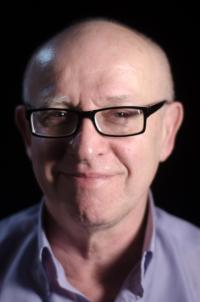When I was a child, they called me “Jew” because they couldn’t scold me for being a communist

Download image
Heřman Chromý was born on 29 September 1947 to a Jewish mother and a communist father. Straight after graduating from high school in 1966 he fled from his father to Děčín to work in the port on Elbe. Soon, for economic reasons he returned to Prague where he worked as a typist in a bank. In 1967 he received a draft card following which he faked a suicide attempt and mental illness to successfuly avoid conscription. He continued to work in the bank but was fired for disagreeing with the Soviet occupation in 1968. He was hired as a clerk to a power plant in Mělník and at the same time organized cultural events with provocative and anti-regime motifs. At the break of 1983 he signed the Charter 77. Throughout 1970s and 1980s he published collections of poems in the samizdat edition of the Havel brothers. In 1986 he was sentenced to two years in prison for his anti-regime poetic and cultural activities, based on a staged letter to president Gustáv Husák. Following release in 1988 he worked in left luggage at Prague’s Holešovice station. The 1989 Velvet Revolution marked the start of his political career. In 1990 he was elected to the Federal Parliament on the ballot of Civic Forum and since 1995 worked as a diplomat at the Ministry of Foreign Affairs. At present, he publishes commentaries on political and other topics at his blog.

